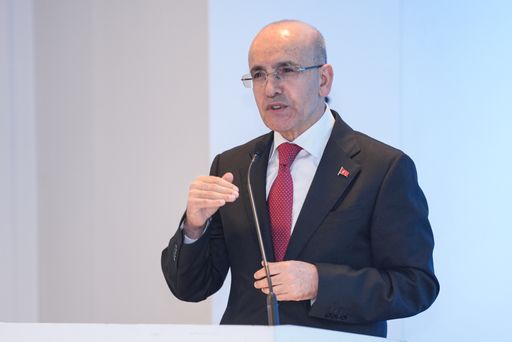Türkiye's disinflation process is continuing in a determined manner that will bring inflation into single digits in two years, Treasury and Finance Minister Mehmet Simsek said, adding the government would not allow the process to be derailed.
Simsek said he expected inflation to remain within the range of the central bank's year-end forecast of 19 percent to 29 percent, and that it would fall below 20 percent next year, and to single digits in 2027.
"We maintain our year-end inflation forecast; the necessary conditions for disinflation are largely in place," he said in an interview in his office.
"Disinflation is progressing along our projected path. What matters to us is that this improvement is lasting and stable," he added.
Official data on Monday showed consumer price inflation slowed to 33.5 percent in July, having peaked at 75 percent in May last year.
Last month, the central bank cut its policy rate by 300 basis points to 43 percent, as markets calmed and disinflation continued.
Simsek said co-ordination of monetary, fiscal, income and supply-side policies would help Türkiye achieve its goals.
"Monetary policy provides strong support to disinflation through the channels of demand, the exchange rate, and expectations, while increased coordination with fiscal policy reinforces this effort," he said.

Spending discipline
Simsek said that while oil prices, foreign trade tariffs, and unprocessed food posed limited upside risks to inflation, the government was prepared to "prevent any obstacle to disinflation by taking the necessary steps to counter potential shocks".
Simsek said economic growth this year could be "slightly below" the medium-term programme target of 4 percent, in what he said was a "temporary slowdown" rather than a sharp economic downturn.
In the first quarter, Türkiye's economy grew 2 percent.
The current account deficit will be below the programme targets, Simsek said, adding that budget revenues would fall short of projections due to slower growth and inflation accounting, but the government would remain disciplined on spending.
Simsek said external financing secured under favourable conditions from international financial institutions for development-focused projects reached a total of $17.4 billion in 2023 and 2024, and some $7 billion had been secured so far this year.
"We have established our medium-term cooperation framework with the World Bank, the Islamic Development Bank, and the Asian Infrastructure Investment Bank (AIIB). With the contributions of other institutions, we aim to secure over $40 billion in external financing in the next three years," he said.



















